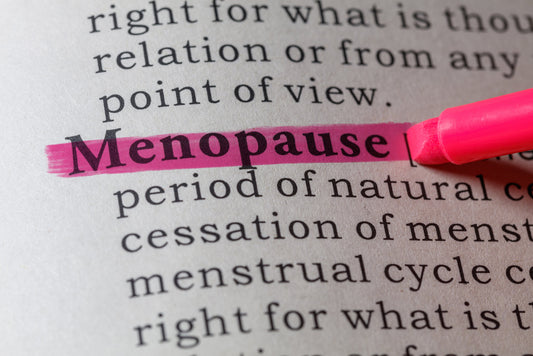Magnesium is a vital mineral that supports over 300 biochemical reactions in the body, from regulating nerve and muscle function to supporting bone health and improving sleep. However, despite magnesium's importance, many people aren’t able to get enough of it through diet alone. Insufficient magnesium levels can lead to various health issues, such as fatigue, muscle cramps, anxiety, and sleep disturbances.
Luckily, there are plenty of magnesium-rich foods that can help boost your levels naturally. But first, let’s take a look at how much magnesium each individual needs based on the Recommended Dietary Allowance (RDA):
- Men: 400-420 mg per day
- Women: 310-320 mg per day
- Pregnant women: 350-360 mg per day
Now that you know how much magnesium you need per day, check out these top 10 food sources of magnesium.
-
Spinach
Dark leafy greens are a powerhouse of nutrients, and spinach is one of the richest sources of magnesium. One cup of cooked spinach provides about 157 mg of magnesium, or around 40% of the recommended daily intake (RDI). It’s also packed with iron and vitamins A and C, making it a great addition to any balanced diet.
-
Almonds
Nuts, particularly almonds, are another excellent source of magnesium. One ounce (about 23 almonds) contains roughly 80 mg of magnesium, which is about 20% of the RDI. Almonds are also high in healthy fats, vitamin E, and fiber.
-
Pumpkin Seeds
Pumpkin seeds (also known as pepitas) are one of the highest sources of magnesium in the seed family. A 1-ounce serving contains an impressive 168 mg of magnesium, covering over 40% of your daily needs. In addition to magnesium, pumpkin seeds provide antioxidants, iron, and healthy fats.
-
Avocados
Avocados are a nutrient-dense fruit that delivers a variety of health benefits, including a significant magnesium boost. A medium avocado provides about 58 mg of magnesium (15% of the RDI), along with heart-healthy monounsaturated fats and potassium.
-
Black Beans
Beans are an affordable and versatile way to boost your magnesium intake. Black beans, in particular, are high in magnesium, with one cup of cooked black beans containing around 120 mg of magnesium (30% of the RDI). Beans are also a great source of plant-based protein and fiber, which support heart health and digestion.
-
Dark Chocolate
Good news for chocolate lovers—dark chocolate is a delicious way to increase your magnesium levels. One ounce of dark chocolate (70-85% cocoa) provides around 65 mg of magnesium, which is about 15% of the RDI. Dark chocolate is also rich in iron, copper, and antioxidants that benefit your overall health.
-
Quinoa
Quinoa is a gluten-free grain packed with nutrients, including magnesium. One cup of cooked quinoa contains 118 mg of magnesium, or about 30% of the RDI. Quinoa is also a complete protein, meaning it contains all nine essential amino acids.
-
Bananas
Bananas are best known for their potassium content, but they also provide a moderate amount of magnesium. One medium banana contains about 32 mg of magnesium, or roughly 8% of the RDI.
-
Tofu
Tofu, a plant-based protein made from soybeans, is another good source of magnesium. A 3.5-ounce (100-gram) serving of tofu provides 53 mg of magnesium, or 13% of the RDI. In addition to magnesium, tofu is high in protein, calcium, and iron.
-
Salmon
Fatty fish like salmon are not only rich in heart-healthy omega-3 fatty acids but also provide a decent amount of magnesium. A 3.5-ounce serving of salmon contains about 30 mg of magnesium, or roughly 8% of the RDI. In addition to magnesium, salmon is packed with protein, vitamin D, and healthy fats.
Why You Might Still Need Magnesium Supplements
While these magnesium-rich foods can significantly contribute to your daily magnesium intake, it’s often difficult to get enough through diet alone — especially for those with higher magnesium needs or absorption issues. The Recommended Daily Intake for magnesium is 320-420 mg for adults, but factors like stress, physical activity, and certain medications can deplete magnesium levels more quickly, making it hard to meet your needs through food alone.
This is where magnesium supplements can come in handy. Whether you’re looking to improve sleep, reduce muscle cramps, or enhance overall health, magnesium plays a crucial role in helping your body function at its best.
For individuals who struggle with sleep, muscle cramps, or anxiety, supplements like magnesium glycinate — known for its high absorption rate and calming effects — can provide targeted support. Magnesium glycinate is one of the best magnesium supplements for sleep, as it helps promote relaxation without causing digestive upset.
Taking a daily magnesium supplement alongside a balanced diet rich in magnesium-containing foods can help ensure you meet the recommended intake and support optimal health. Always consult with a healthcare provider to determine the best magnesium supplement and dosage for your individual needs.
![]()
BEST supplements are formulated with the most effective, science-backed ingredients out there, and nothing else. No fillers, no false promises, and no B.S.
Just the right doses, delivered the right way, with results that actually matter.
Because your BEST health starts with the BEST standards. And we’re here to deliver both.
*These statements have not been evaluated by the Food and Drug Administration. This product is not intended to diagnose, treat, cure, or prevent any disease.









